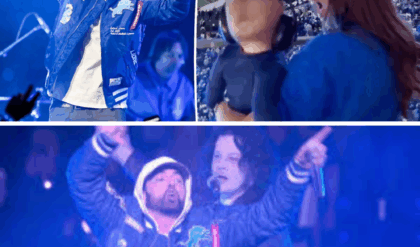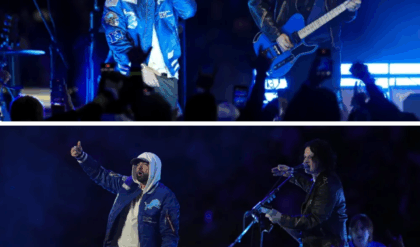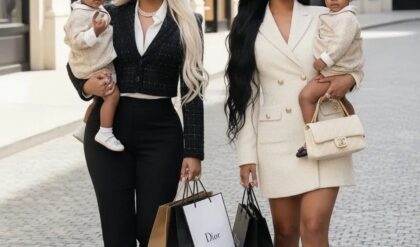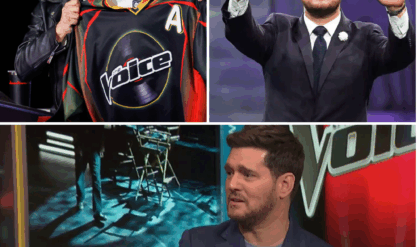“Pilots call me Starbuck. You may refer to me as God.”
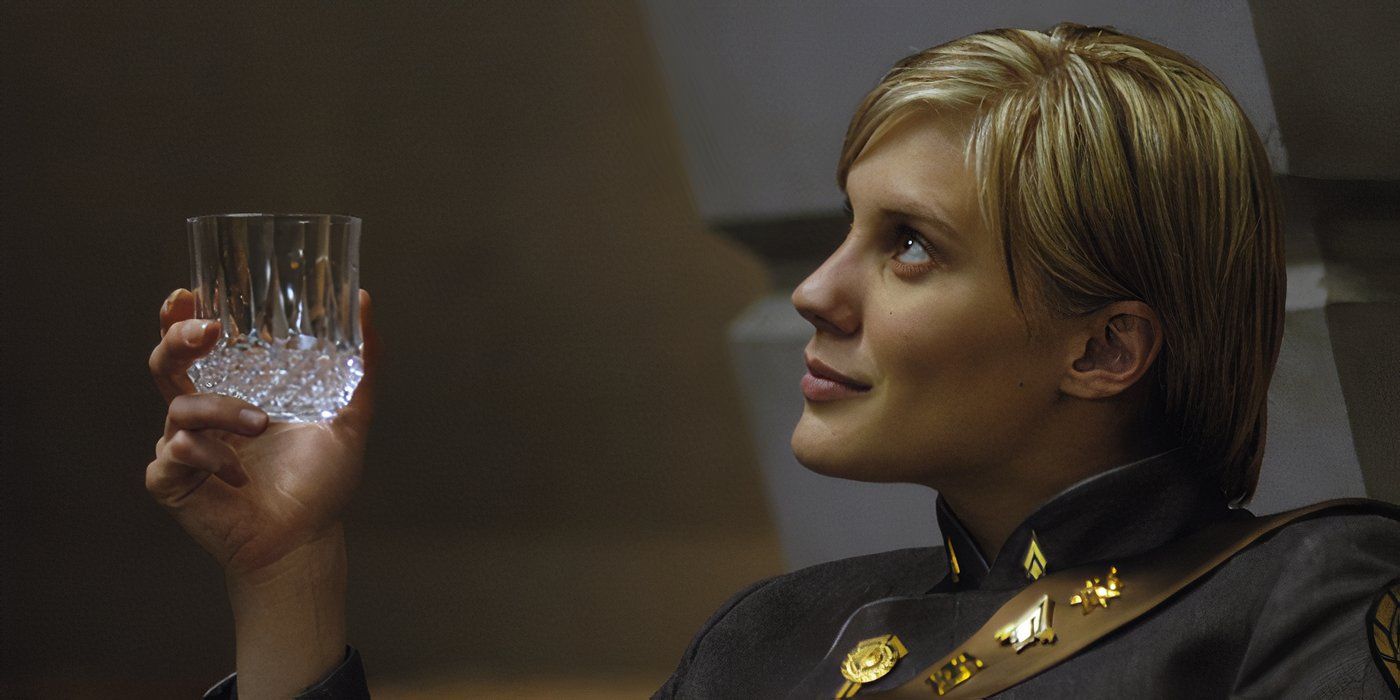
Celebrating its 20th anniversary in 2024, the Battlestar Galactica reboot marked one of television’s first high-profile fusions of sociopolitical sci-fi with an HBO series’ prestige drama sensationalism. Battlestar‘s bleak realism — complete with a gray color palette, cinéma vérité cinematography, and an apocalyptic scenario populated with fluidly flawed characters — helped Ronald D. Moore and David Eick‘s reimagining of Glen A. Larson‘s 1978 series transcend genre barriers. It gathered accolades by the truckload, turned weekly space opera into watercooler material, and opened the floodgates for philosophically-minded projects like Foundation and Moore’s own For All Mankind.
Inside this specialized bubble, Kara Thrace, aka Starbuck (Katee Sackhoff), swiftly emerges as Battlestar‘s stand-out character. Likewise, Starbuck was Sackhoff’s breakthrough role years before the actress armored up as The Mandalorian‘s warrior queen Bo-Katan Kryze. However, even with the benefit of reevaluation on its side, Battlestar Galactica ultimately loses the plot with its best character — who doubles as one of the era’s most complex and engaging characters in any genre and a trendsetter for the next 20 years of fictional women.
Why Is Starbuck ‘Battlestar Galactica’s Best Character?
When the Battlestar Galactica reboot transformed the original series’ male Starbuck (Dirk Benedict) into Kara Thrace, the concept generated as much controversy as one would expect. Battlestar held its ground. The backlash never reflects upon Kara, the swaggering, insubordinate, cigar-smoking, and alcohol-imbibing hotshot pilot who challenges gender norms for breakfast. Cut from the same cloth as Benedict’s incarnation (who in turn draws comparisons to Han Solo), this impulsive, snarky, crude, rude, and arrogant woman jock is a breath of fresh air, especially for 2004. The instant Kara arrives with her short blonde hair, arm muscles, vehement guts, and broken frivolity, Sackhoff installs Starbuck as an indomitable force. She wipes the expectations slate clean and zips away with the series, grinning and flashing her middle finger all the while.
Making Starbuck a cis woman (the series adheres to an outdated gender binary) isn’t a performative choice. Initially, Battlestar Galactica lets Kara be as compellingly substantive as any man, venturing into places few sympathetic heroines are allowed to tread: namely, anything self-destructive, mistake-ridden, and disastrously messy in nature. Being one of humanity’s few survivors and constantly on the run is the least of Kara’s problems. The dire situation compounds her flaws and brings them into stark relief. Battlestar challenges the “punch first and ask questions later” stereotype by examining the trope’s psychological origins, using Kara as its template. She deserves to gloat because she is the greatest pilot in the Twelve Colonies, actually, but still owns an emotional resonance that brews under the surface like a ceaseless solar storm.
Kara’s tendencies are deep-seated and habitually toxic, and never relegated to charming surface-level traits designed to fulfill a role and appease an audience. They’re informed by childhood abuse, parental abandonment, and complex PTSD. Her knee-jerk self-loathing eclipses her massive heart. The dichotomies feed each other. Kara pretends she doesn’t remember the names of every dead pilot, but she’s engraved them as permanently as her tattoos. The problems arise when she doesn’t know where (or how) to aim all the love she feels. She misdirects her trauma and anger inward until they fester like a slow-spreading poison.
Starbuck’s Arc Starts Strong in ‘Battlestar Galactica’
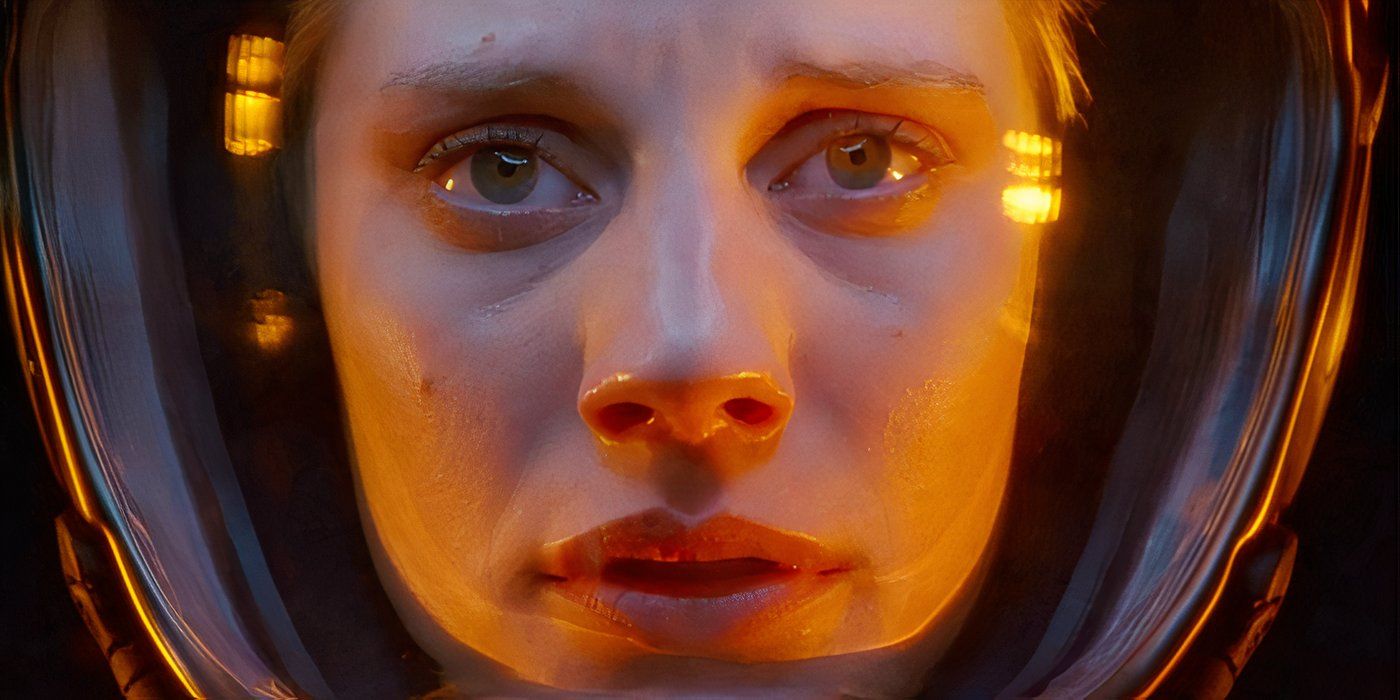
Debating the semantics of whether Kara indirectly caused her fiancé’s death doesn’t matter. It’s the fact Kara assumes responsibility and torments herself in a miserable loop. At one point, Commander William Adama (Edward James Olmos) labels her “a malcontent and a cancer,” which is how Kara views herself. Her surrogate father confirms her worst fears. And if Kara destroys everyone she loves, then of course she runs from vulnerability and strikes out, be it verbally or physically.
Starbuck epitomizes an individual being their worst enemy. She’s a survivor embittered about sacrificing herself for a future she won’t see who’s also capable of infinite compassion. She reveres the gods, clinging to the idea she might have a divinely ordained purpose beyond stealing life’s mundane pleasures. She tortures a Cylon to give her hatred an outlet, then prays for his soul. Kara Thrace actively exists in her broken fullness.
Such success makes Kara’s passive state during Battlestar Galactica‘s back half baffling. Three episodes after her death, Kara returns as an angelic force guiding the fleet to safety. There’s little explanation for this beyond confirmation that a higher power has always governed the characters’ actions. Once Kara concludes her divine mission, she vanishes into thin air.
Starbuck’s Story Doesn’t Make Sense
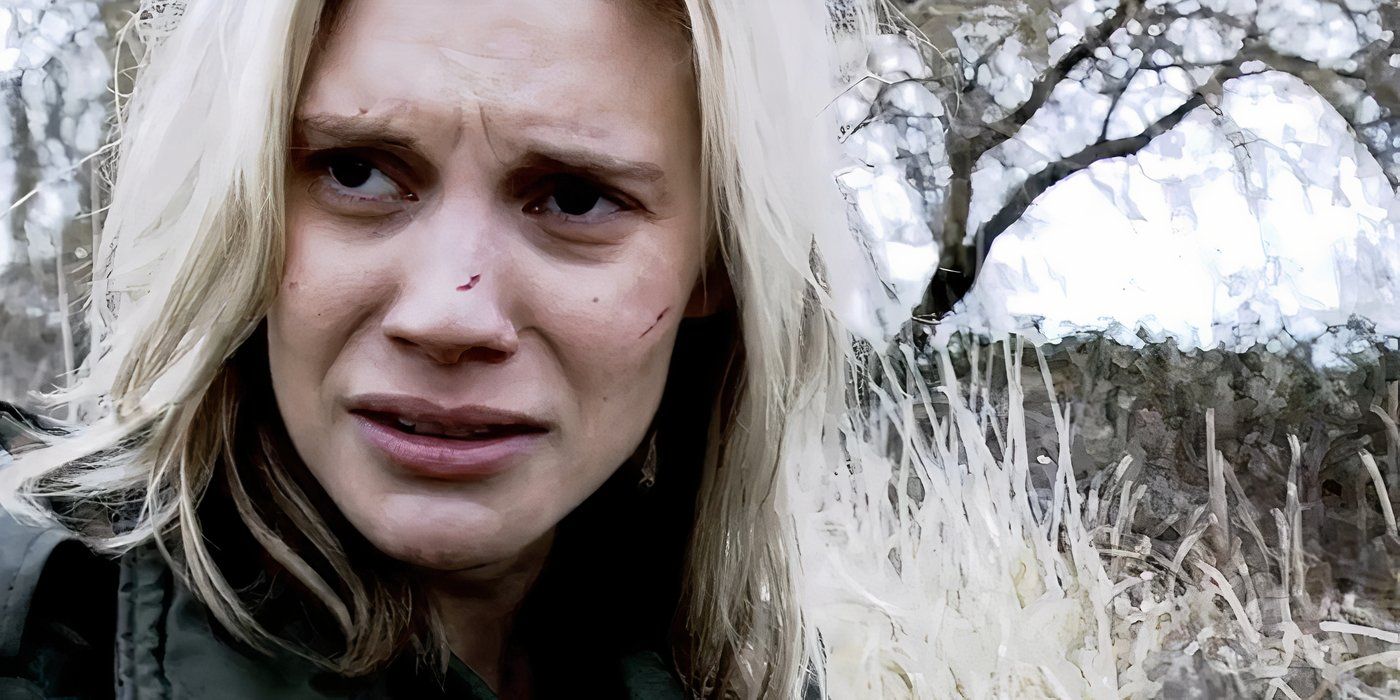
Still, many Battlestar Galactica characters, Kara included, cease to be multidimensional during and after Season 3. They transform into walking theological allegories in service to the narrative. In Kara’s case, she becomes a deus ex machina in a series hinging upon the most deus ex machina of solutions. The deliberate ambiguity of Kara’s existence after her death contradicts with her earlier and brutally intimate character work, not to mention the miniseries’ declarative statement: “It’s not enough to just live. You have to have something to live for.”
Perhaps most importantly for a woman character, why should angelic passivity be her singular achievement? Does Battlestar‘s “all of this has happened before” refrain matter when it boils down to a god’s involvement instead of humanity triggering historic recurrence? By that argument, present-day Earth repeating its ancestors’ mistakes nullifies Kara’s purpose. Television need not hold our hands, but the muddled agenda and confusing execution reductively misuses her potential.
‘Battlestar Galactica’ Never Fulfills Starbuck’s Potential
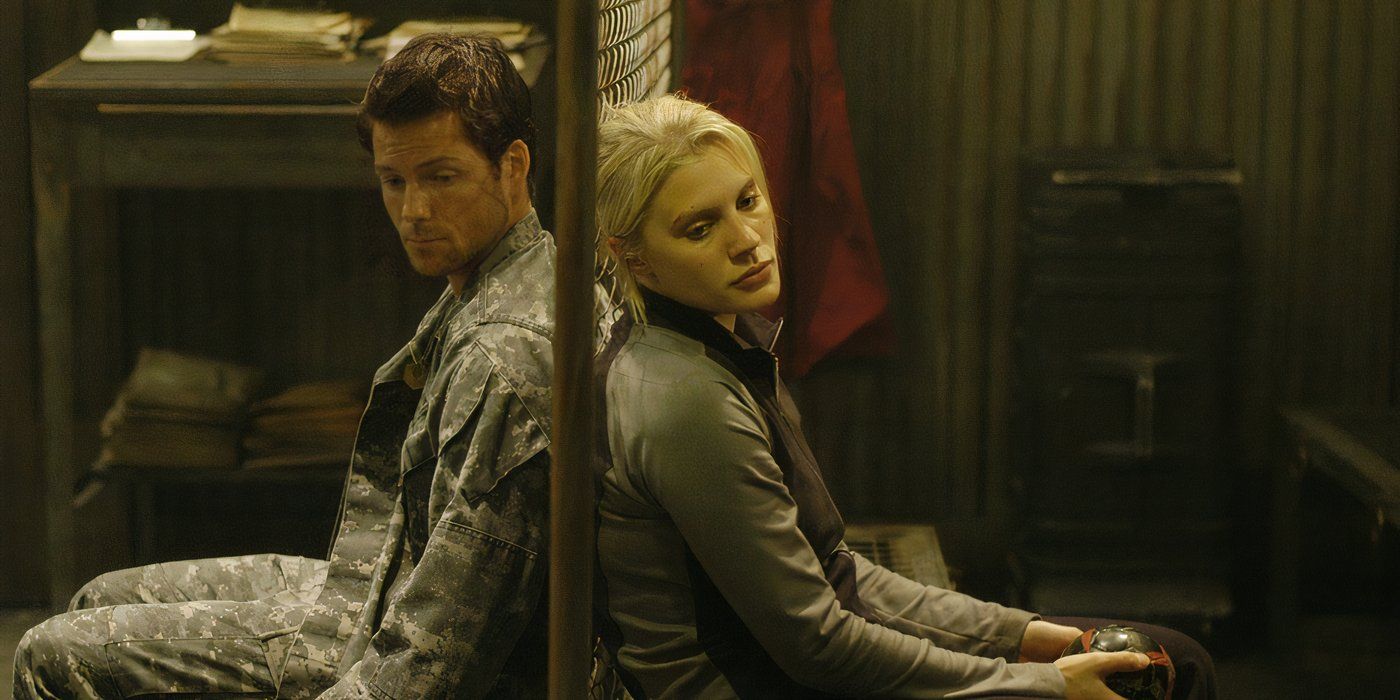
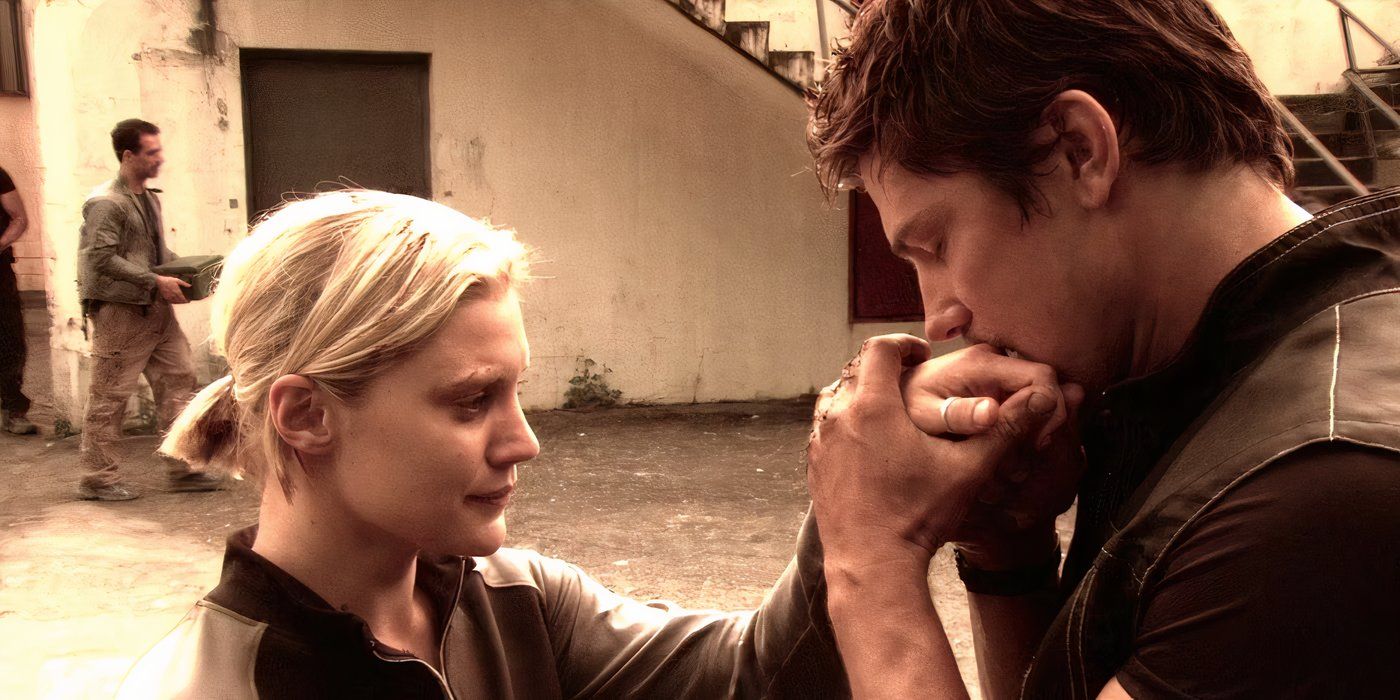
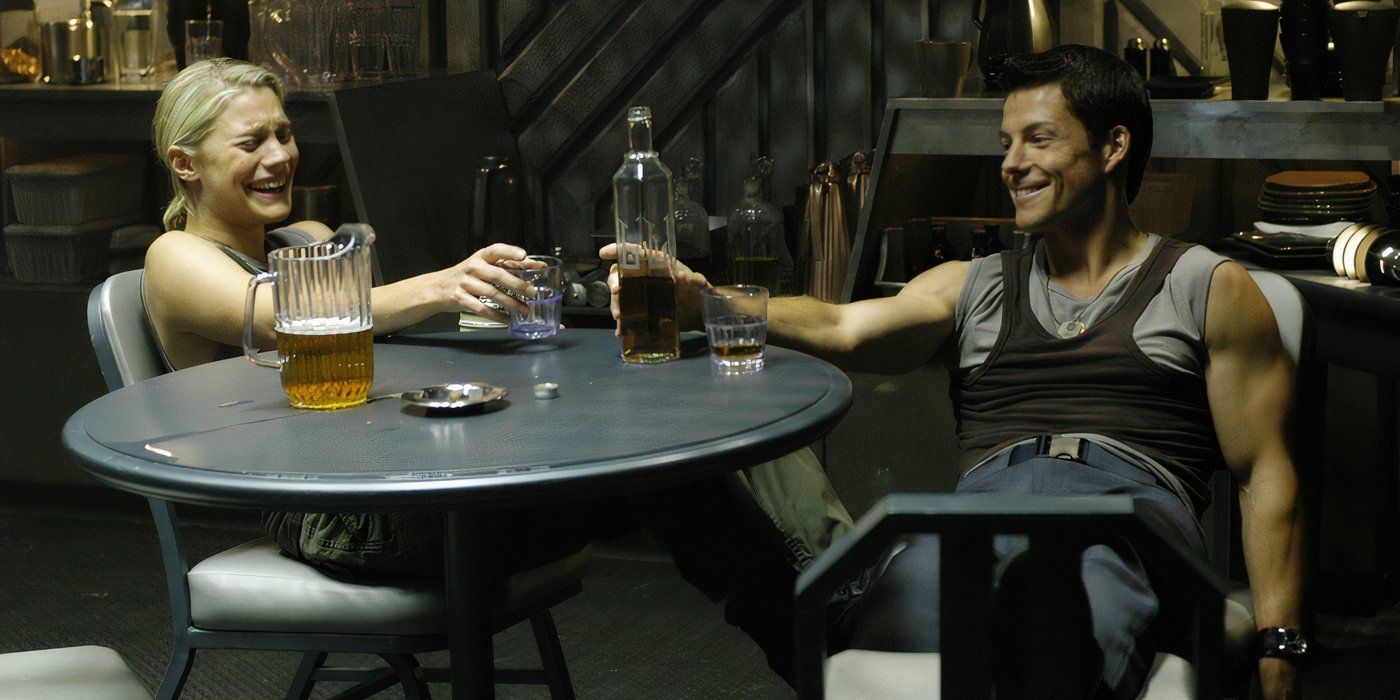
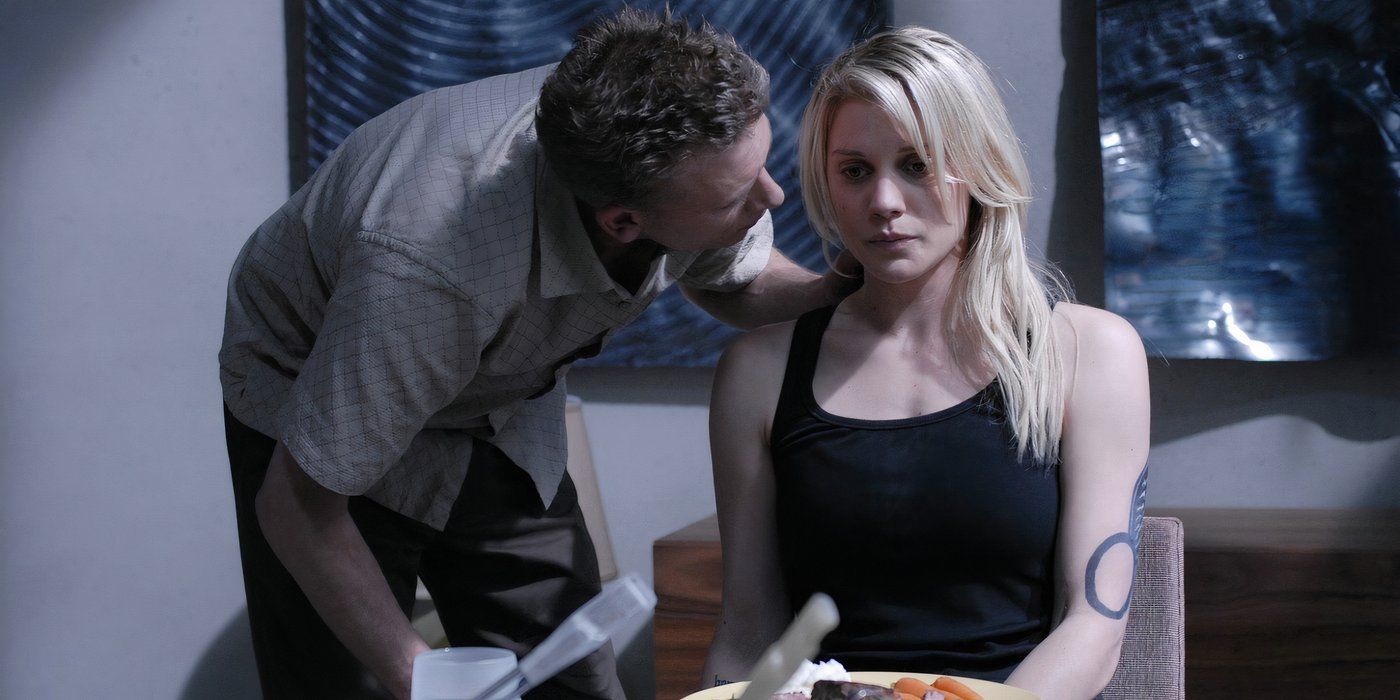
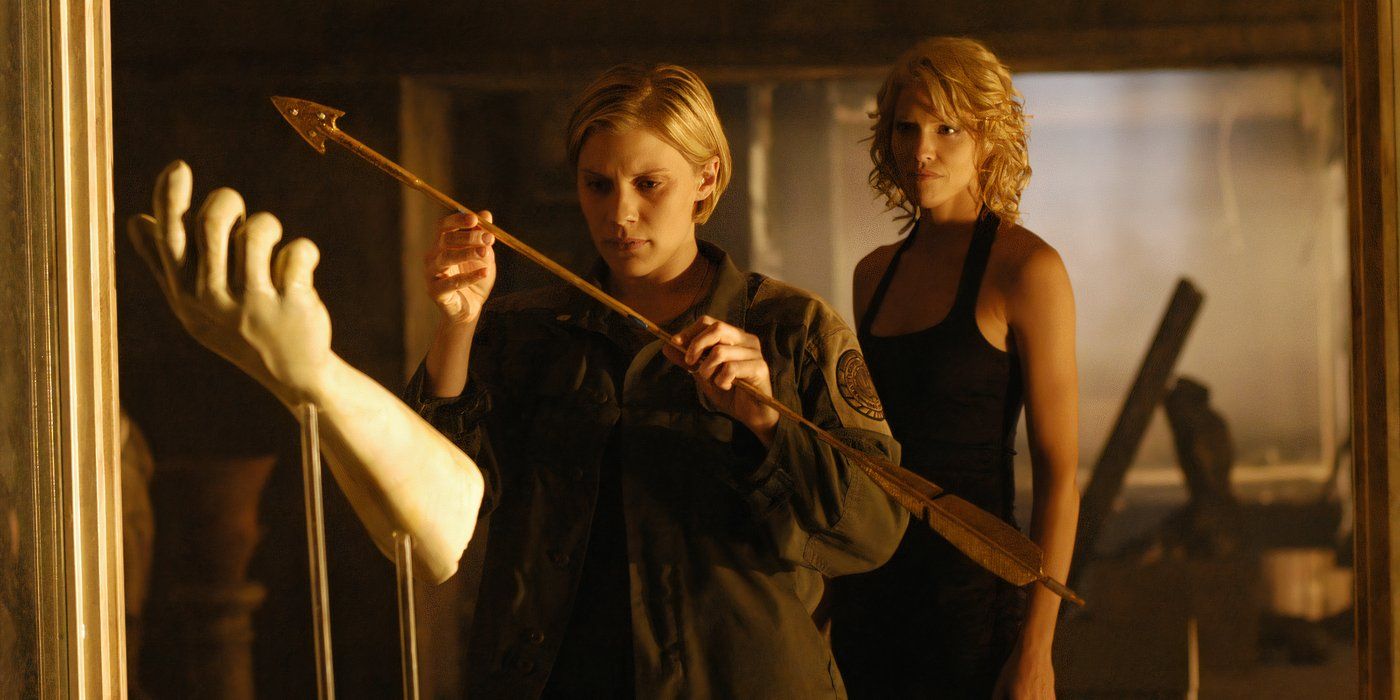
Perhaps Battlestar Galactica foreshadows its writing downfall. After Season 2, Kara’s plotlines lean middling and repetitive. The “wins” of a woman with complex parental figures, diverse sexual experiences, and various romantic interests fold into a toxic love quartet playing into Battlestar‘s space opera side and losing sight of Kara (what does she want, what could she overcome, etc.) in the process. Then there’s Season 3’s opening arc with Leoben (Callum Keith Rennie), Kara’s Cylon stalker, who holds her captive for months and tries to gaslight her into a relationship. Battlestar addresses the inescapable link between sexual violence and the violation of bodily autonomy through Kara in Season 2’s episode “The Farm,” and the same season rightfully classifies rape as a war crime. Even for a merciless series, it’s discomfiting for Leoben to wage gender-based psychological warfare on the series’ main female character.
Katee Sackhoff’s phenomenal work exacerbates the unfortunate trajectory of Kara’s arc. The actress “fought for Starbuck,” she shared with Looper in a 2021 retrospective. “I mean, I fought for her. I must’ve auditioned seven times. I wouldn’t take no for an answer. I just kept calling, like, They have to see me.” Sackhoff’s lightning in a bottle technique altered the writers’ notion of Starbuck from the ground up. Speaking to CinemaBlend, Sackhoff said:
“I think they always intended Starbuck to be one thing. When they cast me, it slowly changed who she was. She was always meant to be ten years older and a lot more stable in who she was as a soldier. And when they cast a 21-year old and they had to rethink who she was. I was growing up when I did that show, not as much literally growing up because I had been in the business since I was a teenager, but I was becoming a woman. I don’t think they could help but add some of that angst and searching and vulnerability into her because that’s where I was in my life.”
Sackhoff gives Kara Thrace her all. For all of Starbuck’s drawling dialogue and lackadaisical posturing, Sackhoff’s shoulders are always tense, indicating a frame wired with energy that either prepares for a blow or a brawl. The choice — caught between anticipating abuse, retaliatory defense, or inciting violence — makes Kara’s rare moments of stillness stand out. She’s never deadlier than when she’s watching, waiting to reassert her dominance through moments that aren’t badass but viscerally desperate. When Kara testifies to feeling “distanced from my body” after her death, it’s felt. The air is discombobulated when Kara Thrace no longer inhabits even her splintered-at-best identity. Despite Battlestar Galactica failing its headlining and most psychologically rich character, Sackhoff carries Kara’s humanity from explosive start to fizzling finish. Quietly disappearing into thin air? Kara Thrace would scoff at the notion.

